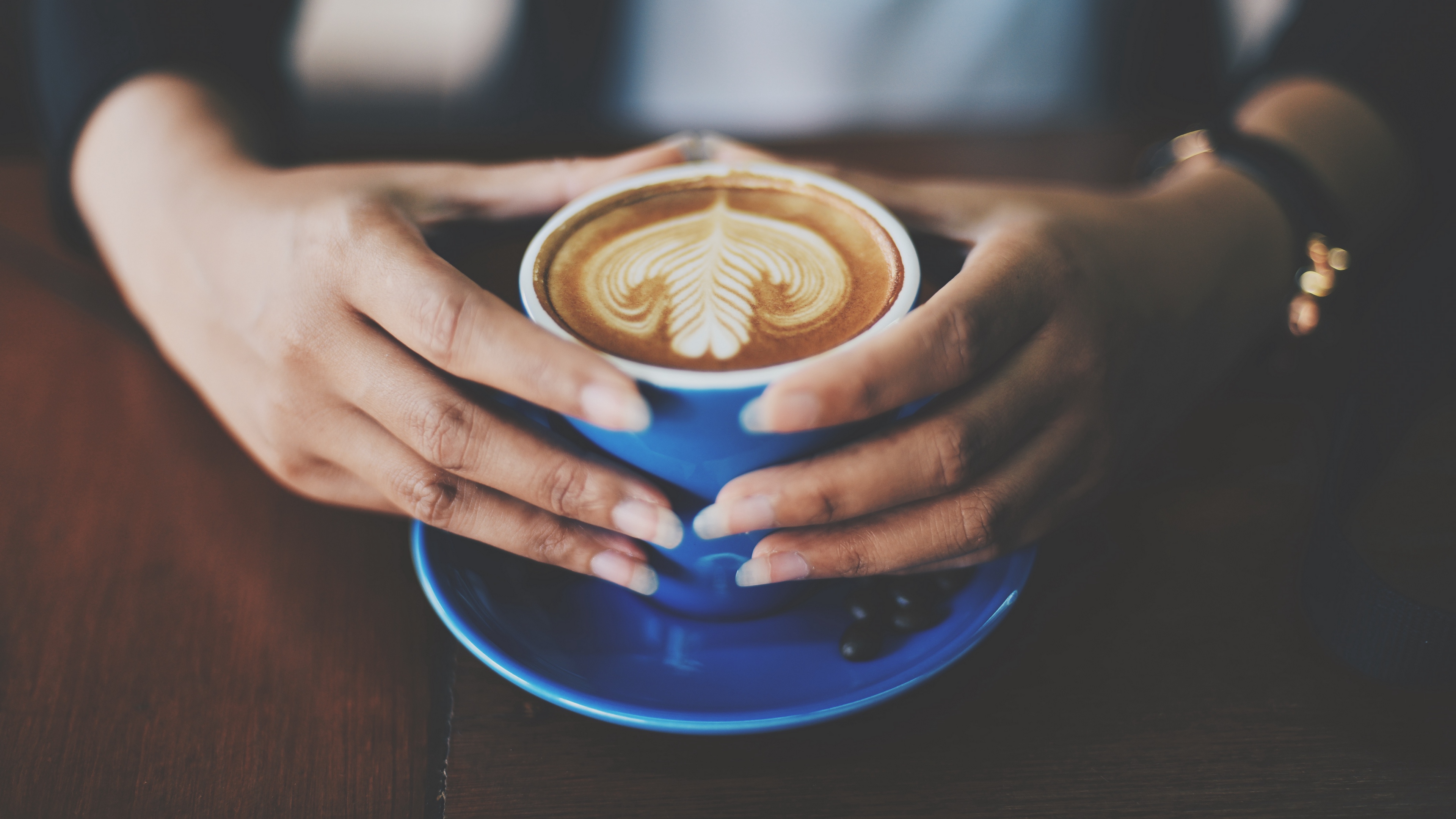- Seeing a ‘coffee cue’ activates areas of the brain that control alertness
- Looking at coffee helps people think in ‘more concrete, precise terms’
- It also may make the day feel like it is going by faster than seeing a ‘tea cue’
Millions of people all over the world rely on a morning cup of coffee to kick-start their day.
But a new study suggests just looking at an espresso, cappuccino or latte could give you the pick-me-up you need – even if you do not drink it.
Researchers believe humans associate coffee with ‘arousal’ so strongly that merely seeing a ‘caffeine cue’ is enough to activate areas of our brain that control how alert, awake and attentive we feel.

The research was carried out by the University of Toronto and led by Sam Maglio, an assistant professor of marketing.
‘Coffee is one of the most popular beverages and a lot is known about its physical effects,’ Mr Maglio said.
‘Much less is known about its psychological meaning – in other words, how even seeing reminders of it can influence how we think.
‘People often encounter coffee-related cues, or think about coffee, without actually ingesting it.
‘We wanted to see if there was an association between coffee and arousal such that if we simply exposed people to coffee-related cues, their physiological arousal would increase, as it would if they had actually drank coffee.’
To uncover this, the researchers exposed participants from both western – US, Canada and Europe – and eastern cultures – China, Japan and Korea – to ‘coffee and tea cues’.
People from different parts of the world were included due to caffeine being the fourth most consumed drink globally, while tea comes in second, the researchers wrote in the journal Consciousness and Cognition.
Four separate experiments were carried out, with up to 342 participants in each.
The participants completed various cognitive tasks, such as creating a mock marketing campaign for a fictional brand of tea or coffee, had their heart rates measured and self-reported how aroused they felt.
They also felt like time went by faster than those who were shown a cup of tea.
‘People who experience physiological arousal – in this case as the result of priming and not drinking coffee itself – see the world in more specific, detailed terms,’ Mr Maglio said.
Priming occurs when exposure to even very subtle cues subconsciously influences thoughts and behaviours.
The researchers noticed, however, the coffee cues had a stronger effect on those who grew up in the west.
‘In North America we have this image of a prototypical executive rushing off to an important meeting with a triple espresso in their hand,’ Mr Maglio said.
‘There’s this connection between drinking caffeine and arousal that may not exist in other cultures.’
Coffee typically contains 150mg of caffeine, compared to just 40mg per mug of tea.
The arousing effects of coffee are therefore more pronounced and help drinkers overcome poor focus quicker than tea.
Future research will look at the associations we have for different foods and drinks, Mr Maglio said.
For example, just thinking about energy drinks or red wine may influence our ‘arousal’, he added.
A 2013 study suggested merely looking at the McDonald’s logo triggers impatience, which may be due to us eating the fast food when we are short of time.
COFFEE COULD COMBAT PARKINSON’S AND DEMENTIA
Coffee could combat both Parkinson’s disease and a form of dementia, research suggests.
Two compounds, including caffeine, in the pick-me-up work together to prevent the accumulation of a toxic protein in the brains of mice.
This protein, known as alpha-synuclein, is associated with both Parkinson’s and dementia with lewy bodies (DLB).
Tests on rodents that are genetically at-risk of both diseases showed the combination of caffeine and the compound EHT prevented alpha-synuclein from building-up after just six months.
The scientists hope caffeine and EHT could be combined into a drug to help treat Parkinson’s and DLB in humans, which are both incurable.
Source: Dailymail.
 Based on +200
reviews
Based on +200
reviews

